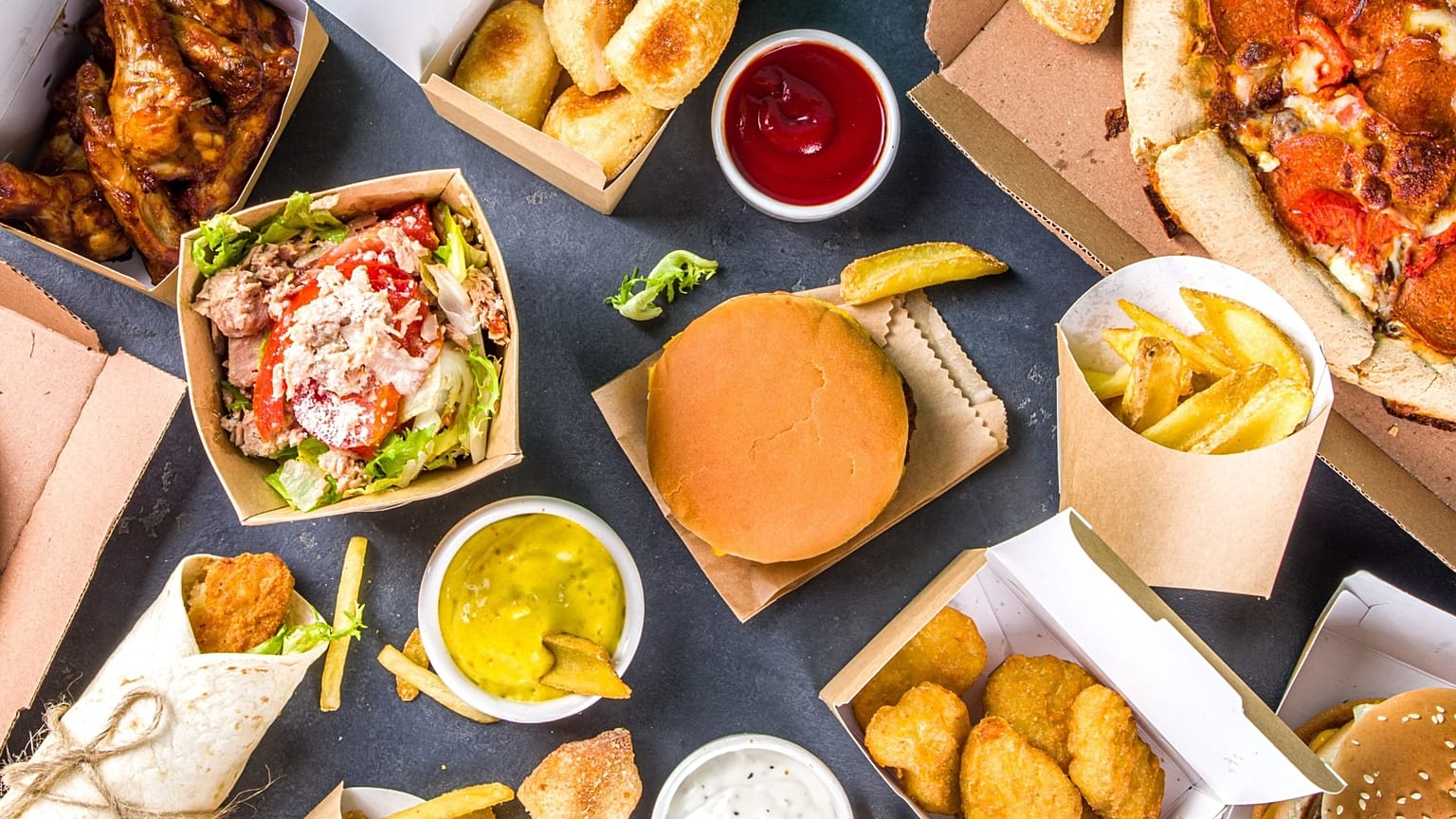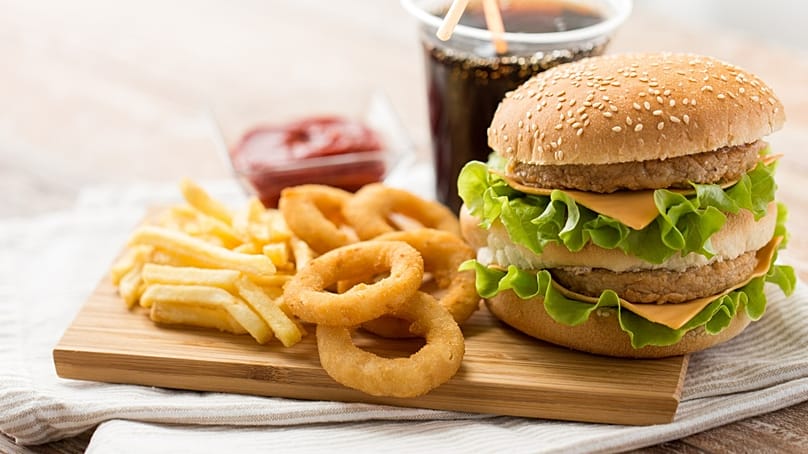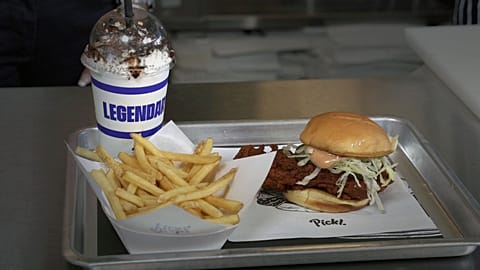Fast food used to be simple. A greasy burger, a side of fries, and a guilty conscience. It was quick, cheap, and nutritionally questionable. Nowadays, fast food is suffering an identity crisis — one that involves gourmet ingredients, sustainability promises, and menus that must cater for every diet.
From gluten-free pizza joints to fast food chains rebranding themselves as health-conscious havens, the industry is desperately trying to stay relevant.
Is this a genuine evolution or just really good marketing? More importantly, will fast food ever escape its reputation for valuing speed over substance?
Gluten-free? There’s a burger for that. Plant-based? Take your pick. Want your meal sprinkled with locally sourced artisanal cheese and a side of ethical responsibility? Sure, why not?
Somehow, against all odds, fast food is now going through an identity crisis—one that involves gourmet ingredients, sustainability promises, and menus that cater to every possible dietary preference.
Gluten-Free fast food: from niche to mainstream
For years, fast food has been largely inaccessible to those with dietary restrictions, particularly people with celiac disease or gluten sensitivity. That’s changing. Major brands and independent players are stepping up, making fast food more accessible than ever.
McDonald’s has led the way, introducing gluten-free burger buns across some European countries (even if there could be always more – says the coeliac community).
In Italy, the chain partners with Schär, a renowned gluten-free brand, to provide certified gluten-free buns served in protective packaging to prevent cross-contamination. Similar initiatives have taken off in Austria, where you can access up to 7 kinds of gluten-free burgers, french fries and a brownie at McCafé. Or in Spain, Portugal, Denmark, The Netherlands, Norway, Sweden, Switzerland where Mc Donald’s offers more inclusive menus beyond just a token gluten-free option.
But the most exciting gluten free innovations are happening outside the big chains. In Spain, for example, Pizza Natura has built a loyal following with its gourmet, gluten-free pizzas made from millet and quinoa bases. Originally a Barcelona-based delivery service, the overwhelming demand led to its expansion into Madrid, proving that high-quality, allergen-free fast food is no longer just a niche market.
Meanwhile, London has seen the rise of completely gluten-free burger joints like Honest Burgers, which ensures safe dining for coeliac customers who can grease their hands and hearts with tasty gluten free buns, fries, onion rings and more! Leon Restaurants, a chain known for its "naturally fast food" ethos, has also embraced gluten-free options, reinforcing the idea that quick dining can be both accessible and indulgent.
The rise of plant-based fast food
The plant-based movement has officially taken root in fast food, fuelled by growing demand for ethical and environmentally friendly choices. Gone are the days of a lone, uninspired veggie burger—brands are now offering plant-based meals that rival their meat-based counterparts.
McDonald’s Italy has embraced the shift with the McPlant, a plant-based burger developed in collaboration with Beyond Meat. Meanwhile, Burger King is taking a bolder approach, aiming for a 50% plant-based menu by 2030. Its fully vegan locations in London and Madrid—serving items like the Plant-Based Whopper and Vegan Nuggets—highlight the brand’s commitment to meat-free dining.
Independent brands are also driving the revolution. In Germany, Vedang is proving that vegan fast food can be just as indulgent as its traditional counterpart. With locations in Berlin and Hamburg, the chain serves up plant-based cheeseburgers, currywurst, and crispy vegan nuggets—dishes that satisfy both vegans and meat-lovers alike.
According to a 2024 ProVeg report, 40% of Europeans are reducing their meat consumption. With that in mind, plant-based fast food isn’t just a passing trend—it’s the future.
Fast food meets regional gourmet: the Italian example
Fast food is no longer about standardized, mass-produced flavours. Across Europe, brands are embracing regional ingredients and elevating fast food to a gourmet experience.
One of the most striking examples is McDonald’s Italy’s "My Selection" line, curated by celebrity chef Joe Bastianich. The menu features premium burgers crafted with Parmigiano Reggiano, Italian salami, and balsamic vinegar from Modena—ingredients that celebrate Italy’s rich culinary heritage while maintaining fast food’s convenience.
Smaller fast-casual brands are also redefining the space. In Rome, Trapizzino has reimagined the humble tramezzino sandwich, stuffing artisanal bread with slow-cooked meats, regional cheeses, and rich sauces. The brand’s success proves that consumers are willing to pay a little more for fast food that doesn’t sacrifice flavour or authenticity.
Beyond Chains: the rise of independent inclusive fast food
While major brands are making changes, some of the most exciting transformations are happening at the independent level.
In Paris, Hank Burger has redefined vegan fast food, serving fully plant-based burgers with dairy-free cheese and house-made sauces. The restaurant attracts not just vegans but flexitarians and even die-hard meat lovers drawn to its bold flavours and commitment to quality.
Madrid’s Mad Mad Vegan follows a similar ethos. Known for its punk-inspired branding and fully plant-based menu, the restaurant has built a cult following with its house-made patties and rich, indulgent sauces—proving that fast food can be rebellious, sustainable, and satisfying all at once.
These independent brands are setting new industry standards, proving that inclusivity and sustainability aren’t just buzzwords—they’re the future of fast food.
The Future of Fast Food: where are we headed?
So, what’s next for fast food? Three major trends are shaping its evolution:
Personalised menus - Expect more customisation, from build-your-own plant-based burgers to keto, paleo, and gluten-free options. The era of one-size-fits-all menus is coming to an end.
Sustainability as the standard - Fast food brands are embracing eco-friendly practices, from compostable packaging to zero-waste kitchens. Companies that fail to adapt risk being left behind as consumers demand more ethical choices.
The rise of regional and artisanal fast food - The biggest shift? Fast food is moving away from uniformity and celebrating local flavours. From gourmet burgers in Italy to gluten-free churros in Spain and plant-based kebabs in Berlin, expect fast food to become a true reflection of regional identity rather than a standardised global experience.
With gluten-free, vegan, and gourmet options on the rise, the industry is proving that convenience doesn’t have to come at the expense of quality. As we head towards 2026, one thing is clear: fast food is being redefined. It’s no longer just fast—it’s also better food.



















